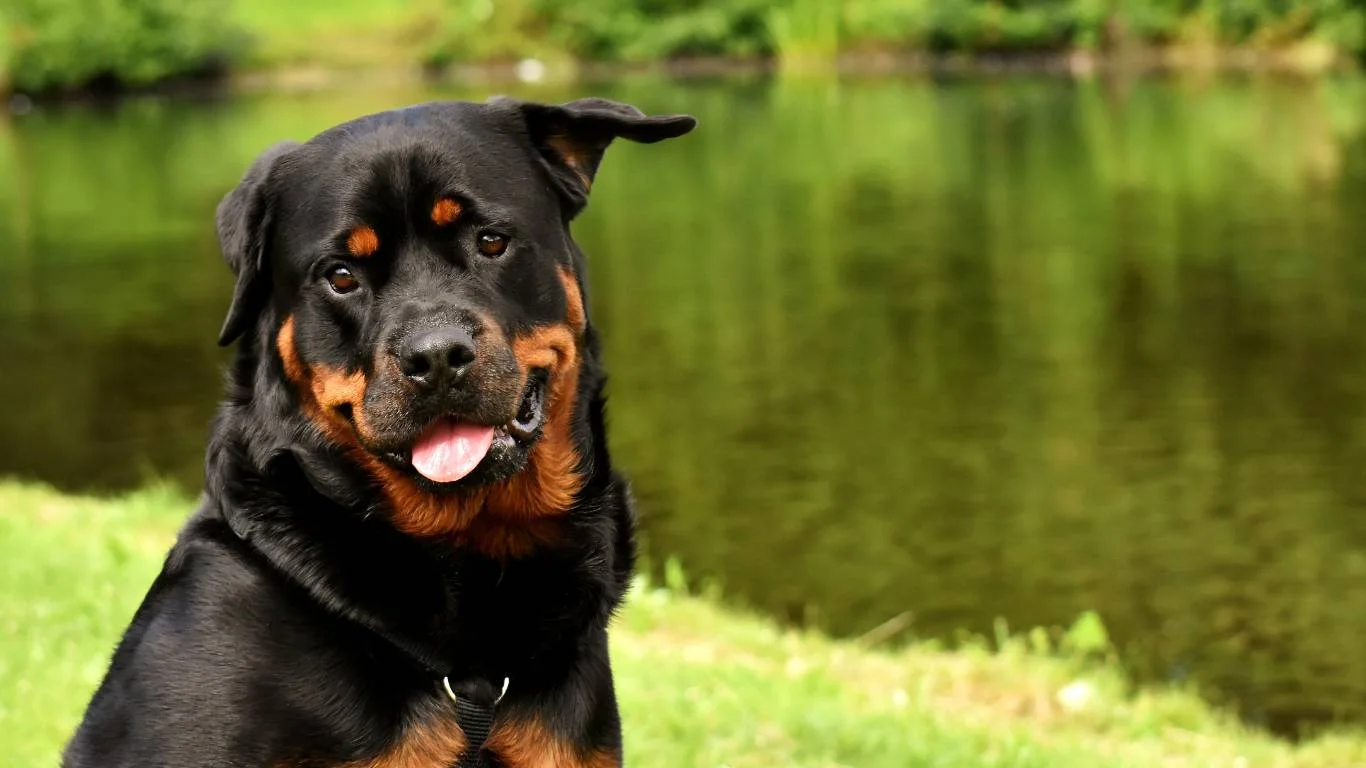Best Diet for Dogs with Thyroid Issues: Boost Their Health
As a pet nutritionist with years of experience working in veterinary clinics, I’ve seen firsthand how thyroid issues in dogs can impact their health. It can be tough for pet owners to navigate the world of dog food when they’re trying to manage such a sensitive condition. One of the first questions I always get from concerned pet parents is, “What’s the best diet for dogs with thyroid issues?” Well, you’re in the right place, because today we’re diving into everything you need to know to ensure your dog stays happy, healthy, and well-nourished despite their thyroid problem.
Understanding Thyroid Issues in Dogs

Before we jump into diet recommendations, it’s crucial to understand what thyroid problems in dogs actually are. The thyroid is a small gland located in your dog’s neck that plays a key role in regulating metabolism. Dogs can experience two types of thyroid problems: hypothyroidism (underactive thyroid) and hyperthyroidism (overactive thyroid). However, hypothyroidism is far more common in dogs, especially as they age.
Hypothyroidism occurs when the thyroid doesn’t produce enough thyroid hormones, which can slow down metabolism, leading to weight gain, lethargy, skin problems, and even a dull coat. On the other hand, hyperthyroidism is much rarer and happens when the thyroid produces an excess of hormones. This leads to symptoms like weight loss, increased appetite, and hyperactivity. In either case, diet plays a pivotal role in managing these issues and improving quality of life.
The Role of Diet in Managing Thyroid Issues
When it comes to the best diet for dogs with thyroid issues, there’s no one-size-fits-all answer. The ideal diet will depend on the specific thyroid condition your dog has, their age, breed, and any other health factors. However, the goal is always to support the thyroid and metabolism in the best way possible through nutrition. And that’s where things get a little tricky. A balanced diet can make all the difference in managing thyroid problems, so let’s break it down.
Choosing the Right Ingredients for Dogs with Hypothyroidism

For dogs with hypothyroidism, a well-rounded diet that supports metabolic health is essential. Here are the key nutrients that will help support your dog’s thyroid function and overall health:
- High-quality protein: Dogs with hypothyroidism can struggle with maintaining muscle mass, so providing a diet rich in high-quality animal proteins like chicken, beef, or fish is crucial. These proteins provide the amino acids needed to maintain muscle and support metabolism.
- Healthy fats: Omega-3 and omega-6 fatty acids are important for skin and coat health, which can suffer due to hypothyroidism. Fatty acids like DHA and EPA found in fish oils and flaxseeds can help keep your dog’s skin healthy and their coat shiny.
- Complex carbohydrates: Opt for carbohydrates that are gentle on the stomach and can provide slow-release energy. Sweet potatoes, pumpkin, and brown rice are great choices. They provide fiber, which is also good for maintaining a healthy weight and supporting your dog’s digestive health.
- Vitamins and minerals: A proper balance of vitamins and minerals is essential for thyroid health. For instance, iodine is a key player in thyroid hormone production, so including iodine-rich foods like seaweed can be helpful. Additionally, B-vitamins like B12 and B6 play a role in metabolic processes and energy production.
Avoiding Common Dietary Pitfalls
While certain ingredients are great for managing thyroid problems, there are also foods you should avoid, especially if your dog has hypothyroidism. It’s crucial to steer clear of:
- Goitrogenic foods: Certain foods, such as soy and cruciferous vegetables (like broccoli and cabbage), can interfere with thyroid function when consumed in large amounts. While small quantities are usually okay, it’s best to limit these in your dog’s diet if they have thyroid issues.
- Low-quality fillers: Cheap dog foods often use fillers like corn, wheat, and soy, which provide little nutritional value. These ingredients can add unnecessary calories and contribute to weight gain without supporting your dog’s thyroid function or overall health.
- Excessive carbohydrates: Some commercial dog foods are packed with carbs, which can lead to weight gain—a common problem in hypothyroid dogs. While carbohydrates are essential, they should come from high-quality, nutrient-dense sources and not from simple sugars or overly processed grains.
Why A Tailored Diet Is Essential
Managing thyroid issues through diet isn’t just about feeding your dog the right ingredients; it’s about making sure the diet is tailored to their individual needs. If your dog is overweight due to hypothyroidism, for example, they may require a diet with fewer calories but still packed with the essential nutrients to support their thyroid function and overall health. Additionally, if your dog is older, their nutritional needs might differ from a younger, more active dog, even if both have thyroid problems.
Consulting Your Veterinarian for Personalized Diet Plans
One of the best things you can do when managing thyroid issues in your dog is to consult with your veterinarian or a pet nutritionist like myself. A professional can help you design a personalized diet plan based on your dog’s unique situation, helping you avoid common mistakes and ensure they’re getting exactly what they need to thrive.
Choosing the Right Commercial Dog Food for Thyroid Issues

If you’re going the commercial dog food route, it’s essential to choose a brand and formula designed to meet the needs of dogs with thyroid problems. Look for foods specifically labeled for senior dogs or those with weight management formulas, as these often provide the right balance of nutrients and lower calories.
It’s important to look for high-quality protein sources (like chicken, turkey, or lamb) and healthy fats (like fish oil). Avoid foods with excessive fillers or artificial additives. Some brands also offer specialized formulas for dogs with thyroid issues, which can be a great choice if you’re looking for convenience while making sure your dog’s nutritional needs are met.
Homemade Diets for Dogs with Thyroid Issues

While high-quality commercial dog food can be a great option, some pet parents prefer making homemade meals to ensure complete control over the ingredients. I’ve worked with plenty of dog owners who have seen significant improvements in their pup’s health after switching to a homemade diet tailored for thyroid issues. However, it’s essential to strike the right balance of proteins, fats, and essential nutrients to support thyroid function without deficiencies.
Key Ingredients for a Balanced Homemade Diet
When preparing home-cooked meals for a dog with thyroid problems, these ingredients should be your go-to:
- Lean Proteins: Opt for proteins like turkey, chicken, lean beef, or fish. These provide essential amino acids that support muscle maintenance and metabolism.
- Healthy Fats: Incorporate sources of omega-3s like salmon oil, sardines, or flaxseed to support skin health and reduce inflammation.
- Complex Carbohydrates: Sweet potatoes, quinoa, and pumpkin are great choices to provide slow-digesting energy without spiking blood sugar levels.
- Fruits & Vegetables: Blueberries, carrots, and green beans offer essential antioxidants and fiber for overall health.
- Iodine-Rich Foods: Since iodine plays a key role in thyroid hormone production, adding small amounts of seaweed or kelp powder (in vet-approved doses) can help maintain thyroid balance.
Simple Homemade Recipe for Hypothyroid Dogs
If you’re considering making homemade meals, start with a simple, vet-approved recipe:
- 1 cup cooked lean ground turkey
- ½ cup steamed sweet potatoes
- ½ cup chopped green beans
- 1 teaspoon flaxseed oil
- A pinch of kelp powder (as per vet recommendation)
Mix everything together and serve according to your dog’s weight and dietary needs. Always consult your veterinarian before making any drastic diet changes to ensure your pup gets all the necessary nutrients.
The Role of Supplements in Supporting Thyroid Health

In my experience, diet alone sometimes isn’t enough to fully support a dog dealing with thyroid issues. Supplements can play a significant role in filling nutritional gaps and enhancing overall well-being. That being said, not all supplements are created equal, and it’s crucial to choose ones that are safe and effective.
Top Supplements for Dogs with Thyroid Issues
Here are some beneficial supplements that can support your dog’s thyroid function:
- Fish Oil: Provides omega-3 fatty acids that reduce inflammation and improve coat health.
- Probiotics: Help maintain gut health, which is essential for nutrient absorption and overall immune function.
- Vitamin B Complex: Supports energy metabolism and helps with lethargy, a common symptom of hypothyroidism.
- Thyroid Support Herbal Blends: Some natural supplements contain herbs like ashwagandha and bladderwrack, which can help balance thyroid hormones (always check with your vet before use).
- Joint Support Supplements: Since hypothyroidism can contribute to weight gain and joint strain, glucosamine and chondroitin can help maintain mobility.
When introducing any supplement, start slow and observe how your dog reacts. While some dogs thrive on these additions, others may have sensitivities. Always consult your vet before adding new supplements to your dog’s routine.
Hydration & Its Impact on Thyroid Health

One overlooked yet vital aspect of managing thyroid health is proper hydration. I can’t count the number of times I’ve seen pet owners focus heavily on food but forget about the importance of water intake. Water plays a significant role in digestion, metabolism, and toxin elimination—key factors in managing thyroid disorders.
Encouraging Your Dog to Stay Hydrated
Some dogs don’t drink enough water on their own, so here are some tricks to keep them hydrated:
- Use a pet fountain – Many dogs prefer running water over stagnant water bowls.
- Incorporate moisture-rich foods like fresh fruits (blueberries, watermelon) and wet dog food.
- Flavor water with low-sodium bone broth for an enticing twist.
- Keep multiple water bowls around the house for easy access.
Making sure your pup drinks enough water can help regulate their metabolism and improve their overall well-being, especially when managing thyroid conditions.
Exercise & Weight Management for Hypothyroid Dogs
Because hypothyroidism often leads to weight gain, keeping your dog active is just as important as their diet. I’ve worked with many pet owners who struggled to find the right balance between exercise and their dog’s energy levels, especially when dealing with hypothyroidism.
Creating a Balanced Exercise Routine
Hypothyroid dogs often have lower energy, so it’s important to tailor their exercise routine to their needs:
- Short, frequent walks: Instead of one long, exhausting walk, break it into two or three shorter strolls throughout the day.
- Low-impact activities: Swimming is an excellent option for dogs with joint issues or weight gain.
- Interactive play: Use puzzle toys and treat-dispensing balls to keep your dog mentally and physically engaged.
Exercise not only helps maintain a healthy weight but also boosts metabolism and improves overall thyroid function. Even small changes in activity levels can make a big difference over time.
Monitoring and Adjusting Your Dog’s Diet Over Time

Managing a dog with thyroid issues is not a “set it and forget it” process. As your dog’s thyroid levels change over time—whether they’re adjusting to medication or experiencing changes due to age or other health conditions—it’s important to continuously monitor and adjust their diet. As a pet nutritionist, I’ve seen many pet owners forget this step and assume that what worked a few months ago will always work, but the reality is, things evolve, and their food may need to evolve too.
How to Monitor Your Dog’s Progress
Regular visits to the vet to check your dog’s thyroid levels are essential. But at home, there are a few things you can keep an eye on to determine if their diet is still supporting their thyroid health:
- Weight and Body Condition: Keep track of your dog’s weight. If they’re gaining or losing too much, it could be a sign that their thyroid medication needs adjusting or that their diet isn’t providing the right balance.
- Energy Levels: If your dog seems more sluggish than usual, it may be time to tweak their food to ensure they’re getting the nutrients they need to maintain a healthy metabolism.
- Skin and Coat Quality: If your dog’s coat starts becoming dull, dry, or shedding excessively, it could indicate a dietary imbalance. Check their food for the right balance of omega fatty acids and other essential nutrients.
- Stool Consistency: Healthy stools are a great indicator of overall health. If you notice changes—like diarrhea or constipation—it might be time to revisit their diet and ensure they’re getting enough fiber and nutrients.
Once you’ve noticed any of these changes, bring them up with your veterinarian so you can adjust accordingly. Sometimes it’s just a matter of tweaking the proportions of protein, fat, and carbohydrates. Other times, it could require a more significant change in their diet. But consistency and monitoring are key!
When to Consult a Veterinary Nutritionist
Although you can do a lot on your own when it comes to managing your dog’s thyroid health, there will come a time when professional help is necessary. As a pet nutritionist, I’ve seen countless cases where dog owners struggle to find the perfect diet for their pets. If you feel like you’re not getting the results you want or if your dog is having a hard time adjusting to a new routine, it’s time to consult a professional.
What a Veterinary Nutritionist Can Do
A veterinary nutritionist will work with you and your vet to create a custom diet plan specifically designed to meet your dog’s unique thyroid needs. They can:
- Provide a comprehensive dietary assessment: By looking at your dog’s current diet, health history, and thyroid condition, a nutritionist can create a plan that’s tailored to their specific needs.
- Recommend supplements: Some thyroid conditions may require specific supplements to support hormone production. A nutritionist can advise on what to add and in what quantities.
- Track and adjust the diet: Nutrition is not a one-time fix. A veterinary nutritionist will help adjust your dog’s diet over time based on their progress, health changes, and evolving thyroid levels.
- Help with weight management: Managing a dog’s weight while dealing with thyroid issues can be a challenge. A nutritionist can help create a calorie-controlled diet that’s also nutrient-dense to prevent weight gain while still providing all the necessary nutrients.
At the end of the day, having the right support from a professional can make a huge difference in your dog’s health and well-being.
Understanding Thyroid Medication and Diet Synergy
If your dog has hypothyroidism, chances are they’re on thyroid hormone replacement medication. These medications, usually in the form of synthetic levothyroxine (or similar compounds), help replace the thyroid hormones that their body is not producing. But while these medications are essential, they work best when paired with a balanced, nutrient-rich diet.
How Diet Supports Thyroid Medication
Thyroid medication alone isn’t enough to keep your dog’s thyroid function in check. A properly balanced diet helps in several ways:
- Improved absorption: A well-balanced diet can help ensure that your dog’s body absorbs their thyroid medication efficiently.
- Support metabolism: Even with thyroid medication, some dogs may have a sluggish metabolism. A high-quality, nutrient-dense diet can help boost their metabolic rate, ensuring that their body uses energy effectively.
- Prevent weight gain: Dogs with hypothyroidism often have a hard time maintaining a healthy weight. By controlling their diet and offering the right nutrients, you help your dog manage their weight despite their thyroid condition.
In short, thyroid medication and diet work hand in hand. Medication regulates the thyroid hormones, while a nutritious diet helps support the overall process and keeps your dog feeling their best.
Choosing the Right Vet for Thyroid Health Monitoring
Finding a veterinarian who understands the nuances of thyroid health in dogs is one of the most important steps you can take. Over the years, I’ve worked with many wonderful veterinarians who genuinely care about their patients, and finding a vet who works with you to create a customized treatment plan for your dog can make a huge difference in managing their thyroid condition.
What to Look for in a Vet
When seeking a veterinarian to manage your dog’s thyroid health, consider these factors:
- Experience with thyroid issues: Some vets may not specialize in thyroid health or may not be as familiar with the latest research in canine endocrinology. Look for a vet who has experience treating hypothyroidism or hyperthyroidism.
- Open communication: You’ll want a vet who listens to your concerns, answers your questions, and is open to discussing diet options and other treatments.
- Holistic approach: Some vets are more inclined to take a holistic approach and may recommend dietary changes, supplements, or natural remedies in addition to traditional treatments. This can be especially helpful if your dog is dealing with chronic thyroid issues.
- Willingness to work with specialists: Sometimes a veterinarian may refer you to a veterinary endocrinologist or a nutritionist if your dog’s thyroid health requires a more specialized approach. This kind of collaboration can lead to better outcomes for your dog.
With the right veterinarian by your side, you can create an effective, long-term plan that addresses your dog’s thyroid issues in a holistic way. So take the time to research and find a vet who fits your dog’s specific needs!
References
- PawPatron: Pet Health & Nutrition
- Understanding Hypothyroidism in Dogs – AKC
- PetMD: Hypothyroidism in Dogs
Disclaimer
The information provided in this article is based on my personal experience as a pet nutritionist and pet care expert. While I strive to provide accurate, helpful information, it is important to consult with a veterinarian before making any significant changes to your dog’s diet or medication regimen. Each dog is unique, and their thyroid condition may require a tailored approach that only a professional can provide.






